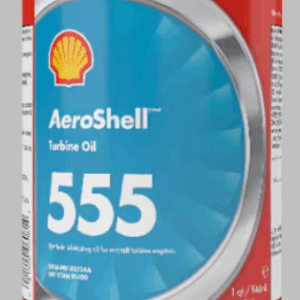ASTO 390
AeroShell Turbine Oil 390 is a 3 mm²/s synthetic diester oil helps to improve auxiliary power unit (APU) starting reliability, particularly cold-soak starting.

Features and benefits
Reliable Cold-Soak Starting
Supports ETOPS¹ operations
Lower APU maintenance costs
Specifications & approvals
| Country / OEM | Specification |
|---|---|
| British | Def Stan 91-94 |
| Russian |
IPM-10 VNII NP 50-1 4f and 4u 36Ku-A |
| Joint Service Designation | OX-7 |
| Airbus | Consumable Material List (CML) Reference 03APB2 |
| Honeywell | GTCP 30, 36, 70, 85, 331 and 660 APUs, starters and turbocompressors |
| Pratt & Whitney | APS 500, 1000, 2000, 3000 & 5000 |
The TDS and MSDS are in English, but you can find these documents for other countries in the Shell EPC area
.
Applications
AeroShell Turbine Oil 390 was developed primarily as an improved 3 mm2/s oil for British turbojet engines. AeroShell Turbine Oil 390 is fully approved for a wide range of turbine engines.
More recently, because of the low temperature characteristics of AeroShell Turbine Oil 390, there is interest in using this oil in auxiliary power units (APU) in order to overcome the effects of cold soak. Normal practice is to shut down the APU during cruise, the APU then experiences cold soak, often prolonged, and when the unit is started there is considerable difficulty resulting in the unit not coming up to speed in the given time, thus causing a hung start.
In such cases where the APU is subject to a long cold soak the viscosity of standard 5 mm2/s oils used in the APU will increase from 5 mm2/s at 100°C to typically 10,000 mm2/s at –40°C. At this much higher viscosity the oil cannot flow easily leading to a large viscous drag within the APU, thereby contributing to the difficulty in starting. AeroShell Turbine Oil 390 on the other hand experiences a much smaller viscosity increase (typically 2000 mm2/s at –40°C) with a reduction in viscous drag which is often sufficient to overcome hung start problems.
All experience to date shows a considerable improvement in cold reliability of the APU when AeroShell Turbine Oil 390 is used.
Health, Safety and Environment
Health and Safety
- This product is unlikely to present any significant health or safety hazard when properly used in the recommended application and good standards of personal hygiene are maintained.
- Avoid contact with skin. Use impervious gloves with used oil. After skin contact, wash immediately with soap and water.
- Guidance on Health and Safety is available on the appropriate Safety Data Sheet, which can be obtained from https://www.epc.shell.com/
Protect the Environment
- Take used oil to an authorised collection point. Do not discharge into drains, soil or water.
Additional information
Advice
- Advice on applications not covered here may be obtained from your Shell representative..
Get in touch with us
We’re here to assist you with any inquiries or support you may need
Typical Physical Characteristics
| Properties | Method | DEF STAN 91-94 | Typical |
|---|---|---|---|
| Oil type | – | – | Synthetic ester |
| Density @15°C kg/m³ | ISO 12185 | Report | 924 |
| Kinematic Viscosity @40°C mm²/s | ASTM D445 | 16.0 max | 12.9 |
| Kinematic Viscosity @100°C mm²/s | ASTM D445 | 4.0 min | 3.4 |
| Kinematic Viscosity @-54°C mm²/s | ISO 3104 | 13 000 max | <13 000 |
| Pour Point °C | ASTM D97 | -60 max | <-60 |
| Flash Point °C | ASTM D92 | 225 min | >230 |
| Total Acidity mg KOH/g | SAE-ARP-5088 | Report | Passes |
| Foaming Characteristics Sequences I,II,III Tendency/Stability ml/ml | ASTM D892 | Must pass | Passes |
| Trace metal content ppm | ASTM D4951 | Must pass | Passes |
| Elastomer compatibility, % weight change after 24/120 hours Nitrile | Def Stan 05-50 (Part 61) Method 22 | Report | Passes |
| Elastomer compatibility, % weight change after 24/120 hours Fluorocarbon | Def Stan 05-50 (Part 61) Method 22 | Report | Passes |
| Elastomer compatibility, % weight change after 24/120 hours LCS Fluorocarbon | Def Stan 05-50 (Part 61) Method 22 | Report | Passes |
| Elastomer compatibility, % weight change after 24/120 hours Silicone | Def Stan 05-50 (Part 61) Method 22 | Report | Passes |
| Solid particle contamination – sediment mg/l | FED-STD-791 M.3010 | 10 max | <10 |
| Solid particle contamination – total ash of sediment mg/l | FED-STD-791 M.3010 | 1 max | <1 |
| Corrosivity | Def Stan 05-50 (Part 61) Method 3 | Must pass | Passes |
| High temperature oxidative stability | Def Stan 05-50 (Part 61) Method 9 | Must pass | Passes |
| Load carrying ability | IP 166 | Report | Passes |
These characteristics are typical of current production. Whilst future production will conform to Shell’s specification, variations in these characteristics may occur.



